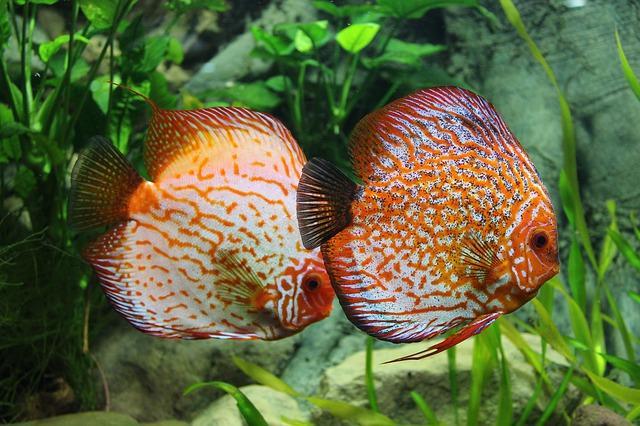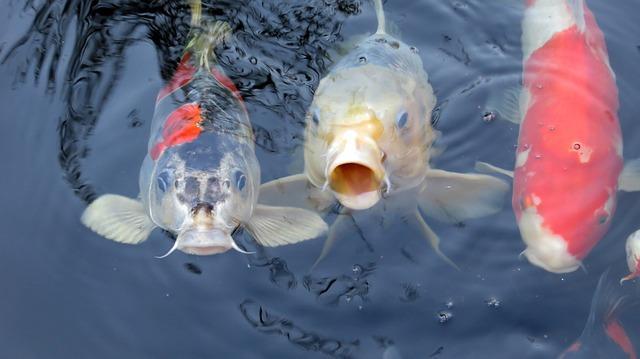How Long Is a Fish's Memory?


We associate certain animals with certain behaviors or characteristics. You can be as sly as a fox, as wise as an owl or have a memory like a fish. The last example is due to the commonly assumed fact that fish have very poor memories. However, the traits applied to such animals are generalizations and in many cases are reductive. For example, we think of pigs as being filthy, but perhaps they should be associated with having high intelligence.
Reassessing these animal stereotypes leads AnimalWised to ask how long is a fish's memory? We look at fish capacity for memory and look at the scientific evidence which suggests the memory span of fish.
The memory of fish
Fish are vertebrate animals, sharing certain traits common to all the animal species which make up this group. While these traits include the physical, specifically the presence of a backbone, there are other characteristic they share in terms of ability. Including fish, they all respire by converting oxygen to carbon dioxide (with one possible exception[1]), for example.
Some vertebrates are more evolved than others. In terms of memory, humans have an episodic memory, enabling them to remember time, dates and other specifics from the past. While there is much debate regarding episodic memory in animals, it is believed that there are a minority of non-human animals which may have some level of this ability. In fact, one study even suggests it is possible all vertebrates possess some form of protoepisodic memory system, even if they have not evolved to use it[2].
What has been proven is that the scientific literature on the subject affirms that fish have certain aspects which allow some form of memory and that this is comparable to other more evolved vertebrates[3]. Various studies have been carried out to confirm this. Once such study showed fish being familiarized with feeding routines. This was shown by offering them food at a certain place and at a certain time.
We can verify fish have memory by observing the subjects of the study arriving at the correct moment to eat. This shows they have some capacity for memory. It has also been shown that certain species of fish which have been caught by the hook on a fishing line were able to recognize this trap in the future. This suggests they have the memory of trauma which prevents them getting caught again.
Fish have a complex sensory system, as sharks demonstrate. This is undoubtedly linked to the type of habitat in which they live, since anatomical and physiological strategies are required to develop properly. The examples of memory mentioned allow us to specify that memory is linked to sensory capabilities. In other words, fish collect information from the environment and use it to create mental maps that allow them to orient themselves spatially, move around, locate escape routes from predators or reproduce. This occurs both in the ocean and with freshwater fish.
This memory capacity has been attributed to the telencephalon, a brain structure with different levels of development depending on the group of vertebrates to which an animal belongs. Research carried out on the memory of fish has made it possible to establish which biochemical, morphological and ecological aspects are linked to this ability and to the telencephalon.
Why is it said that fish have no memory?
There was a widespread and erroneous idea that fish have no memory. It is likely this theory derives from the fact these animals belong to the most primitive vertebrates on the evolutionary scale. They had been attributed limited brain capacities, including the capacity for memory.
As has been shown, this belief is still a myth and has spread in the collective consciousness. We see it in jokes and cartoons which depict fish and forgetful. As we have explained, this myth can be refuted thanks to the evidence provided by scientific research.
It can be said that these animals even have a more complex sensory system than that of humans. There are many species of fish capable of perceiving olfactory, visual, auditory stimuli, particles dissolved in water (such as blood in the case of sharks) and electromagnetic frequencies. Although fish do not have as developed a memory as human beings, these features show they have other abilities which are much more acute.

How long is the memory span of fish?
When we talk about the memory of fish, we are talking about a group of animals which range from the tinniest minnow the great white shark and beyond. This means the capacity for memory may differ from species to species. Some studies have shown certain fish to have the ability to avoid approaching a fishing hook for months due to a previous negative experience.
Additionally, some species manage to recognize members of their school for up to seven consecutive days. They have also been able to remember individuals of other animal species with whom they have had a previous confrontation. It is believed that the memory span of these fish can range up to three months.
It has also been shown that fish can remember negative stimuli experienced in a certain area, so they avoid approaching it. Additionally, it has been observed in some fish species that if they see two others facing each other, they will avoid approaching the victor. All these aspects are undoubtedly linked to the short and long-term memory present in these chordates.
In conclusion, scientific studies continue to prove to us the capacity for memory in fish. Specifically, it show that events related to the ability to feel pain trigger this memory ability. This aspect is important to promote the respect that must be had for all animals. This is not so much because of their similarity to humans in certain traits, but more because of the intrinsic characteristics of their species that define them as living beings.
To learn more about fish abilities, take a look at our article on how sharks reproduce.
If you want to read similar articles to How Long Is a Fish's Memory?, we recommend you visit our Facts about the animal kingdom category.
1. Spektor, Brandon. (2020). Scientists discover first known animal that doesn't breathe. Retrieved from:
https://www.livescience.com/first-non-breathing-animal.html
2. Allen, T. A., & Fortin, N. J. (2013). The evolution of episodic memory. Proc Natl Acad Sci U S A, 110(Suppl 2), 10379–10386.
https://www.ncbi.nlm.nih.gov/pmc/articles/PMC3690604/
3. Tort, L. (2019). Animal welfare in fish: The controversy around fish as sentient beings. Contributions of biology. Animal Law. Forum of Animal Law Studies, 10(4), 60-66. https://ddd.uab.cat/pub/da/da_a2019v10n4/da_a2019v10n4p60.pdf
- Chung, S. (2008). Appropriate maze methodology to study learning in fish. Journal of Undergraduate Life Sciences, 2(1). https://web.archive.org/web/20110706211428/http://juls.sa.utoronto.ca/Issues/JULS-Vol2Iss1/JULS-Vol2Iss1 -Review3.pdf
- Plitt, L. (2010). Fish have a good memory. BBC New World. Retrieved from: https://www.bbc.com/mundo/ciencia_tecnologia/2010/01/100121_1500_pez_memoria_mito_lp






